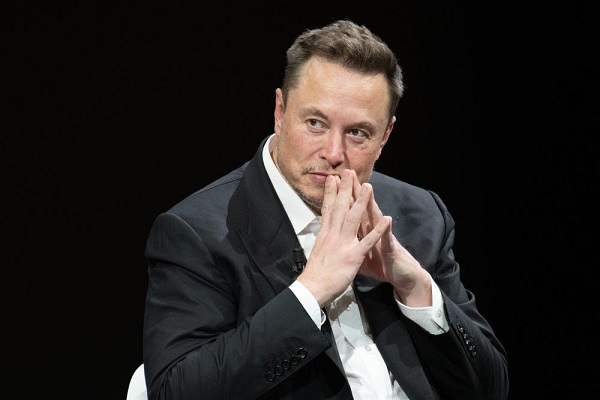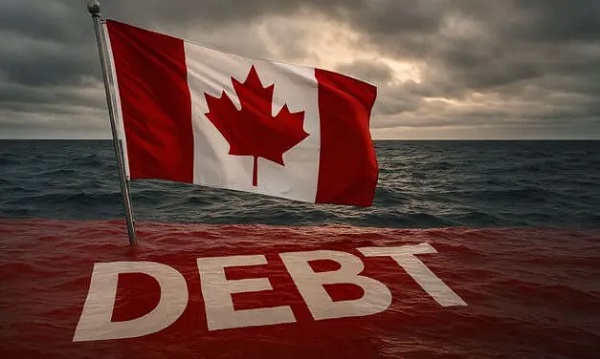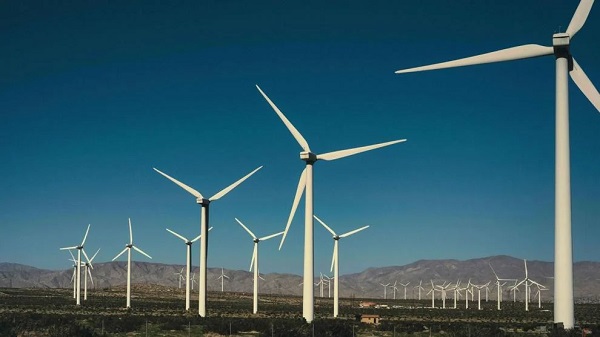Business
While China Hacks Canada, B.C. Sends Them a Billion-Dollar Ship Building Contract

This is like finding out your house was broken into and, instead of calling the cops, you hire the burglar to remodel your kitchen because he offered a good price.
Just days—days—after British Columbia Premier David Eby shrugs off federal concerns over awarding a billion-dollar ferry contract to China, and I’m quoting here, tells Ottawa to “honestly, just mind your own business”… we learn that China is hacking Canadian telecommunications infrastructure.
Let that sink in.
So here’s the story. British Columbia, a province of Canada that still pretends to care about sovereignty and jobs—just handed a massive, publicly funded ferry contract to China. Yes, China. Not a B.C. shipyard. Not a Canadian company. But a Chinese Communist Party–owned industrial complex. Because apparently, in the year 2025, a G7 nation that once built warships and railroads can’t even build a ferry. The country that designed the Avro Arrow now outsources its boatbuilding to Beijing.
Why? According to BC Ferries, the Chinese bid was the “strongest” and “most cost-effective.” Translation: they were the cheapest totalitarian regime available.
And to justify that? We’re told Canadian shipyards didn’t even bid. Why? Because they don’t have the “capacity.” Which sounds an awful lot like: we’ve let this industry rot for decades and now we’re pretending it’s just the market doing its thing.
Now, Premier Eby didn’t deny it. He didn’t fight it. He didn’t try to fix it. He just said, “It’s not ideal. But it’s too late.” Five years of procurement, so we’re locked in. No turning back. As if surrender is somehow a neutral policy.
And Chrystia Freeland? She called it “dismaying,” which is Canadian for we’re not going to do a thing about it. No federal funding, she said, and please make sure it’s cybersecure. From a Chinese state firm. Sure.
Meanwhile, here’s the part no one wants to say out loud: China is actively attacking Canada’s digital infrastructure. This isn’t some distant cyber operation. It’s happening now. Salt Typhoon, a Chinese state-linked group, exploited a Cisco vulnerability to compromise three core telecom devices. They siphoned data. Created a GRE tunnel. Pulled configuration files. They were inside the system. Watching. Collecting. Spying.
And while that’s going on, B.C. writes them a check.
This is like finding out your house was broken into and, instead of calling the cops, you hire the burglar to remodel your kitchen because he offered a good price.
Now business analysts, the same people who said NAFTA would be great for everyone, argue this is “industry standard.” They point out Canadian firms have used Chinese shipyards for years. Yes—and look where that got us. No shipbuilding capacity, no strategic leverage, and no national pride.
BC Ferries insists it’s not a total sellout. They’re spending $230 million on local refits and maintenance. Great—so we send the billion overseas and toss the leftovers to local workers. That’s not industrial policy. That’s industrial hospice care.
Unions and domestic builders like Seaspan have said clearly: We can do the work. We want to build. But they need policy. They need backing. And instead of standing up and saying, “Let’s build ships in Canada again,” David Eby shrugs and signs the dotted line.
And what does B.C. Premier David Eby say when the federal government dares to ask a reasonable question—like, “Hey, is sending a billion-dollar infrastructure deal to a Chinese state-owned company while China’s hacking your telecoms and stealing your IP a smart move?”
Eby’s response?
“Honestly, just mind your own business.”
That’s not spin. That’s what he said—on the record, during a Jas Johal radio interview. He told Ottawa, Chrystia Freeland, and every single Canadian taxpayer footing the bill: Stop asking questions. Don’t expect accountability. Just sit quietly and watch us outsource the building blocks of our own sovereignty to an authoritarian regime.
Eby then admits—almost casually—that the deal is “not ideal.” Right. Because funneling public funds to a hostile regime that’s openly undermining your democracy and infiltrating your critical infrastructure isn’t ideal. But he claims the decision can’t be reversed. Why? Because it would cost too much, and we don’t have the capacity to build our own ferries anymore.
Let that sink in. This isn’t Somalia. This is Canada. A G7 country. And the Premier of one of its most important provinces is now saying: We’re too broken to build ferries, so let the CCP do it.
While B.C. writes checks to a Chinese Communist Party–controlled shipyard to build vessels for public service, Chinese state-sponsored hackers are already inside Canadian networks—pulling data, monitoring traffic, and spying on political officials. These aren’t amateur criminals. These are agents of a foreign authoritarian regime. And they’re not looking for cat videos. They’re not trying to intercept your hockey stream. They’re looking for call metadata, SMS content, real-time location tracking, and political communications. You know, espionage.
This isn’t some speculative post from a blog or a heated Reddit thread. This is straight from a government-issued cyber intelligence bulletin, published on June 19, 2025, by the Canadian Centre for Cyber Security, Canada’s frontline cyber defense agency, in collaboration with the FBI. The bulletin confirms that a sophisticated Chinese state-sponsored threat actor, known as Salt Typhoon, orchestrated a targeted cyberattack in mid-February 2025, exploiting vulnerabilities in Cisco’s IOS XE software to infiltrate critical telecommunications infrastructure in Canada.
Specifically, Salt Typhoon zeroed in on a critical flaw, CVE-2023-20198, which allowed them to gain unauthorized access to three network devices registered to a major Canadian telecom provider. For those unfamiliar, this vulnerability is a remote code execution flaw that grants attackers admin-level privileges—essentially handing them the keys to the network. Once inside, they didn’t just poke around. They retrieved sensitive configuration files, which are like the blueprints of a network’s operations, and modified at least one to establish Generic Routing Encapsulation (GRE) tunnels. If you’re not a techie, GRE tunnels are a clever technique to create virtual pathways that bypass standard security controls, allowing attackers to quietly siphon off network traffic—think of it as tapping a phone line, but for entire data streams.
This wasn’t a smash-and-grab job. The bulletin details how Salt Typhoon’s actions were methodical, aimed at enabling long-term surveillance and data collection. By rerouting traffic through these GRE tunnels, they could access bulk customer data, including call metadata, location information, and potentially even the content of SMS messages or other communications. The targets? High-value individuals, such as government officials and political figures, whose data could fuel China’s broader espionage objectives. The bulletin warns that this is part of a global campaign, with similar attacks hitting telecoms in the U.S. and dozens of other countries, compromising providers like AT&T and Verizon.
The Canadian Centre for Cyber Security doesn’t mince words: Salt Typhoon is “almost certainly” backed by the People’s Republic of China, and their campaign is expected to persist, targeting Canadian organizations, especially telecoms and their clients, for the near and present future.
Now here’s where it gets interesting. Or infuriating.
Let’s look at CSIS’s own public report, released in 2024. Salt Typhoon isn’t named, no. But China is named. Over and over. Page 6 reads like a war warning that no one in Ottawa even bothered to read. It says, and I quote, “The People’s Republic of China continues to engage in sophisticated espionage and foreign interference… especially in critical mineral sectors and technology supply chains.”
Translation? They’re not just watching your data—they’re coming for your economy, your elections, and your sovereignty. This is more than cybercrime. This is geopolitical warfare. And China is winning because we’re too weak or too afraid to say no.
The CSIS report goes on: Chinese actors are infiltrating elections, immigration channels, even using AI and front groups to manipulate discourse and policy. Not someday. Now. Right now.
Let’s be completely clear: In February, China penetrated Canadian telecom infrastructure.
In June, we paid them to build ships.
How is that not a national scandal?
How do you allow that?
This is the collapse of common sense in real time. National security is not a partisan issue. It’s not theoretical. It’s not about trade. It’s about who holds the keys to your data, your infrastructure, and your future.
And right now, Canada’s government—and yes, its provinces—are not just letting that fall into China’s hands. They’re delivering it.
On a silver ferry.
Let that sink in.
Now ask yourself—what exactly are we getting in return? Where’s the national benefit? Where’s the plan? Where’s the damn spine?
David Eby says “BC First” like it means something. But how does it square with shipping public contracts straight to Beijing while China’s hacking your telecoms and eyeing your elections? You can’t call it “BC First” when you’re literally bankrolling Chinese state-owned industry while Canadian shipyards rot on the sidelines. That’s not leadership. That’s surrender.
And here’s the kicker—Eby’s been in multiple meetings with the feds. Four major First Ministers’ meetings, plus two sit-downs with Mark Carney, the man Liberals are touting as their next economic messiah. And you’re telling me not one person at those tables could put two brain cells together and say:
“Hey Mark, B.C. needs ferries. You want a manufacturing revival. Let’s cut a deal. You give us federal subsidies, we build these ships here at home. Yeah, it costs more up front, but it proves we’re serious about national industry. And we’re not handing vital infrastructure contracts to the same regime that’s compromising our telecoms and undermining our democracy.”
Would that not be common sense? Apparently not—because neither Carney nor Eby made that deal. They let it slide. They let the CCP win a contract while Salt Typhoon was actively hacking Canada’s backbone.
That’s not “hard choices.” That’s strategic failure. It’s cowardice masked as pragmatism.
Eby isn’t a dealmaker. He’s a decline manager. He’s the guy who shrugs and says, “Well, we can’t do it here,” and then signs a billion-dollar check to a foreign power with no accountability, no dignity, no leverage.
And Carney? The guy trying to pitch himself as the future of Canada’s economic revival? The guy who says we need to build, invest, strengthen? He let this go. Either he didn’t care, or he wasn’t paying attention. Either way—it’s incompetence at the highest level. And it proves the Liberals and the B.C. NDP are fully aligned in managing decline, not reversing it.
They told us Donald Trump was the threat. They told us he would sell out our values, undermine democracy, and abandon national interests. David Eby said it. Mark Carney echoed it. They told you they were the adults in the room—the ones who would put Canada first.
And what did they actually do?
They handed a billion-dollar public contract to a Chinese state-owned shipyard—while China is actively hacking our telecom networks and undermining our elections. They outsourced jobs, security, and dignity to the same regime their own intelligence agencies are warning us about.
David Eby said “BC First.” Mark Carney talks about reviving Canadian industry. But when the opportunity came—when they could have drawn a line, invested in our workforce, and told Beijing “no”—they caved. They chose cheap. They chose weak. They chose decline.
This is not leadership.
It’s not “strategic.”
It’s not “pragmatic.”
It’s pathetic.
And if this is what the NDP and Liberal vision looks like—deals for China, excuses for inaction, and silence while Canadian industry is gutted—then it’s time for an election.
We need real leadership. We need people who will fight for Canadian workers, Canadian infrastructure, and Canadian sovereignty. Not performative speeches. Not hollow slogans. Results. Accountability. Courage. This government has failed. Let the people decide. Call an election—before we lose more than just jobs and we can let someone lead who actually wants to make Canada First.
Subscribe to The Opposition with Dan Knight .
For the full experience, upgrade your subscription.
Business
The richest man alive just got a whole lot richer

Quick Hit:
Elon Musk on Wednesday became the first person in history to hit a $500 billion net worth, according to Forbes. The Tesla, SpaceX, and xAI founder’s fortune now sits roughly $150 billion ahead of Oracle co-founder Larry Ellison, with Tesla’s surging stock and SpaceX’s record valuation driving the leap.
Key Details:
- Forbes reported Musk’s net worth crossed the $500 billion mark around 3:30 p.m. ET, fueled by Tesla’s nearly 4% stock gain Wednesday — adding roughly $9.3 billion to his wealth.
- Musk’s fortune has grown from $24.6 billion in March 2020 to $100 billion by late 2020, $200 billion in 2021, $400 billion in 2024, and now $500 billion.
- Tesla shares have nearly doubled since April, when Musk said he would step back from his role leading President Trump’s Department of Government Efficiency (DOGE) to focus on Tesla. The EV maker’s market cap is now within 10% of its all-time high, with Musk’s 12% stake worth about $191 billion.
Elon Musk achieved yet another major milestone Wednesday, becoming the first ever person worth $500 billion. Musk, who became the first person ever worth $400 billion or more in December, is $150 billion ahead of runner-up Larry Ellison—and half-way to becoming the world’s first… pic.twitter.com/h9LJmAvT7F
— Forbes (@Forbes) October 1, 2025
Diving Deeper:
Elon Musk made history Wednesday as the first individual ever to surpass a $500 billion personal net worth, according to a report from Forbes. The Tesla and SpaceX CEO’s fortune crossed the milestone in mid-afternoon trading, following another surge in Tesla’s share price and continuing investor confidence in Musk’s technology empire.
Tesla stock jumped nearly 4% Wednesday, pushing the company’s valuation closer to its all-time high. Forbes estimates Musk’s 12% stake in Tesla alone is worth about $191 billion. The remainder of his wealth comes from SpaceX — currently valued at around $400 billion — and his artificial intelligence firm xAI, worth roughly $60 billion.
Musk’s rise in wealth has been staggering. In March 2020, he was worth $24.6 billion. By late 2020, he had crossed the $100 billion threshold, reaching $200 billion in 2021 and $400 billion last year. His $500 billion milestone now puts him more than $150 billion ahead of the world’s second-richest person, Oracle co-founder Larry Ellison.
In a post on X last month, Musk said his compensation and influence over Tesla were not about money, but control over the company’s direction: “It’s not about ‘compensation,’ but about me having enough influence over Tesla to ensure safety if we build millions of robots,” he wrote. “If I can just get kicked out in the future by activist shareholder advisory firms who don’t even own Tesla shares themselves, I’m not comfortable with that future.”
According to Forbes, Tesla’s board recently proposed a new compensation plan for Musk worth as much as $1 trillion — the largest package ever offered to a corporate executive. The plan would grant Musk up to 12% of Tesla’s stock if the company hits a $8.5 trillion market cap and other performance milestones over a decade.
At his current trajectory, analysts suggest Musk could become the world’s first trillionaire by 2033 — an outcome that seemed unthinkable just five years ago. As Musk continues to balance his leadership at Tesla, SpaceX, and xAI, his financial empire appears to be expanding as rapidly as the industries he dominates.
Automotive
America’s Troubled EV Industry Loses Its Subsidized Advantage – Now What?


From the Daily Caller News Foundation
The Environmental Protection Agency announced Monday that it has assumed responsibility for what it says is the “Largest Lithium-Ion Battery Cleanup in Agency History” at the Moss Landing facility outside San Francisco.
Crews supervised by the EPA entered the facility this week to begin cleaning out the remains of the fire damaged batteries, which the agency says will be recycled at EPA-approved recycling facilities.
As has happened far too frequently, the retired batteries erupted spontaneously in January, leading authors of MIT’s weekly climate newsletter to speculate about what this latest conflagration would mean for the future of the electric vehicle and stationary battery storage industries going forward.
Dear Readers:
As a nonprofit, we are dependent on the generosity of our readers.
Please consider making a small donation of any amount here.
Thank you!
“With the growing number of electric vehicles and batteries for energy storage on the grid,” the authors wrote, “more high-profile fires have hit the news, like last year’s truck fire in LA, the spate of e-bike battery fires in New York City, or one at a French recycling plant last year.”
The parade of troubling incidents related to these batteries has continued throughout 2025. In June, for example, a large container ship called the Morning Midas, operated by Zodiac Maritime, sank into the Pacific Ocean after batteries in EVs it was carrying to Alaska spontaneously combusted, forcing the crew to abandon ship. A month later, U.S.-based shipper Matson announced it would no longer transport EV cargoes due to the obvious dangers involved. Three weeks later, Alaska Marine Lines put a similar policy in place.
All of these inconvenient news stories come at an already troubling time for the U.S. EV industry, given that its huge $7,500 per car federal subsidy expired at midnight, Sept. 30. That subsidy was enacted in the Orwellian-named Inflation Reduction Act of 2022 and subsequently repealed in the One Big Beautiful Bill Act signed into law by President Donald Trump on July 4 of this year.
Sales have spiked in the run-up to the subsidy expiration, to no one’s real surprise. But EV makers now face the troubling prospect of having to compete in the U.S. market absent that significant price advantage, leading many to anticipate a significant drop-off in sales.
Some carmakers have already begun to scale back operations. Stellantis announced the cancellation of a planned all-electric Dodge Ram pickup model on Sept.12, citing slowing demand for such trucks in a field already dominated by the Ford F-150 Lightning and the Tesla Cyber Truck. The fact that sales of those competing models are already coming in well below projections this year was another obvious motivating factor.
Ford, meanwhile, said in August it would delay the introduction of what it refers to as “next generation” updates to its Lightning pickup and full-sized electric van for two years due to the same challenging market conditions. “F-150 Lightning, America’s best-selling electric truck, and E-Transit continue to meet today’s customer needs,” the company said in what can only be described as an understatement.
Competitor GM announced it would take similar action on Sept. 4, saying it was suspending production of a pair of Cadillac SUVs – the mid-size Lyriq and the full-size Vistiq – at its assembly plant in Spring Hill, Tenn., effective in December. The company also said it would indefinitely delay the start of a second shift at an assembly plant near Kansas City.
Amid the frequent big fire events involving EV batteries and the industry’s fallout from the loss of a federal subsidy, it must be repeated here that the electric vehicle industry is not “new” or even a young one. It is in fact well over a century old, with the first electric cars introduced in the U.S. in the 1890s, during the same period when gas-powered cars started to come onto the market. In those early years, in fact, many experts insisted that electric cars would ultimately render gas-powered cars obsolete and become the dominant force in American transportation.
But makers of EVs then found themselves suffering from the same set of limitations that plague the industry well over a century later: Range anxiety, lack of infrastructure, and persistent unreliability.
The fact that an industry this old has still not solved for the same set of issues after so much time makes it reasonable to question whether it ever will.
David Blackmon is an energy writer and consultant based in Texas. He spent 40 years in the oil and gas business, where he specialized in public policy and communications.
-

 Alberta14 hours ago
Alberta14 hours agoWith no company willing to spearhead a new pipeline under federal restrictions, Alberta takes the lead
-

 National1 day ago
National1 day agoCanada’s birth rate plummets to an all-time low
-

 Fraser Institute2 days ago
Fraser Institute2 days agoAboriginal rights now more constitutionally powerful than any Charter right
-

 Alberta2 days ago
Alberta2 days ago$150 a week from the Province to help families with students 12 and under if teachers go on strike next week
-

 espionage1 day ago
espionage1 day agoNorth Americans are becoming numb to surveillance.
-

 Crime1 day ago
Crime1 day agoPierre Poilievre says Christians may be ‘number one’ target of hate violence in Canada
-

 Alberta14 hours ago
Alberta14 hours agoHalfway River First Nation makes history with Montney natural gas development deal
-

 Alberta15 hours ago
Alberta15 hours agoTaxpayers: Alberta must scrap its industrial carbon tax





